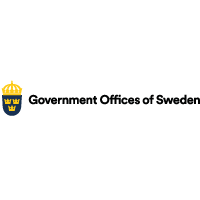
Excellencies, ladies and gentlemen,
I am particularly pleased to address you here today. I have devoted a lot of my time to strengthen Swedish policies and laws as well as introduced new practices to prevent and strengthen our society´s resistance against violent extremism and terrorism. International cooperation with partners is strong and needs to be developed continuously to ensure that our societies can protect our populations from terrorist attacks.
During the past two days, you as participants have discussed preventing and countering terrorism and violent extremism in a changing global security landscape. The devastating proliferation of Covid-19 has contributed to increased polarization. New technologies are used not only to facilitate our daily lives, but also misused by terrorists. To meet the new landscape, we have to adjust and develop our tools to prevent violent extremism and counter terrorism.
To do exactly that, I, together with my colleagues in the EU, adopted a joint statement last November on how to take the EU’s counter terrorism agenda forward. Yesterday the EU counter terrorism coordinator gave an in-depth overview of the EU approach.
The respect for international law, including human rights and fundamental freedoms, is the basis on which all our work is built. We have heard numerous examples on why the respect for human rights and fundamental freedoms is critical, also when countering the misuse of the internet for terrorist purposes. Corruption, the lack of respect for rule of law, violations of human rights and fundamental freedoms increase the risk of grievances, which might lead to radicalization and violent extremism. States have the primary responsibility to combat terrorism, but we do also have an obligation to respect human rights and fundamental freedoms, democratic principles and the rule of law. This perfectly illustrates what is meant by the OSCE’s concept of comprehensive security.
We must continue to pay attention to root causes of violent extremism. Terrorist groups across the ideological spectrum try to exploit grievances and vulnerabilities to polarize, divide and erode trust in democratic institutions. Existing socio-economic and political challenges, real or perceived feelings of victimization, are used to recruit followers and expand the support base of terrorist groups. The pandemic has worsened the situation, which has been highlighted by several speakers. Promoting tolerance and inclusive societies is pivotal to tackling root causes.
In the online world, we as participating States need to find ways to address harmful and illegal content online while protecting and promoting human rights and fundamental freedoms. Examples of how to go about this have been discussed. We have heard about the challenges for small and medium-sized tech companies to remove content online, but also positive stories on media literacy and how smaller companies work with bigger ones. I believe a multi-stakeholder approach with the involvement of civil society and the private sector is a way forward.
Regarding rehabilitation and reintegration. Developing and maintaining safe and orderly prisons, avoiding overcrowding and understaffing, establishing links between prison and probation, and developing rehabilitation and reintegration programs are essential. There is a need to support not only the individual, but also the community as a whole. A community that lacks housing, infrastructure, schools and employment opportunities will most probably face more challenges when reintegrating returning individuals. And we need individualized age- and gender- responsive approaches to create sustainable solutions. As has been highlighted during the conference, there is a huge demand to be met.
On the important issue of gender; the conference has emphasized that women can have a variety of roles in terrorist organizations. We need to take this into account when developing policies for preventing violent extremism as well as for countering terrorism. If we fail to recognize this, women’s radicalization might go undetected and women’s access to rehabilitation and reintegration programs will be insufficient. That being said, women are often victims of terrorism and their roles can differ over time. Gender responsive analysis is a necessity in preventing violent extremism and countering terrorism and should be mainstreamed throughout.
As we are soon coming to the end to this conference, I would like to thank the close to 600 participants for making it a success. We would not have had such a rich discussion without the diversity of participants representing governments, civil society, academia, the private sector, and international and regional organizations.
Thanks.